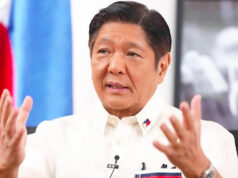DFA: Undocumented OFWs in Kuwait brought home
By Camille A. Aguinaldo and Charmaine A. Tadalan
SOME 190 undocumented overseas Filipino workers (OFWs) from Kuwait, including 18 minors, were brought home by the government as part of the amnesty program of the Kuwaiti government, the Department of Foreign Affairs (DFA) said on Tuesday.
About 400 more OFWs are also expected to return to the Philippines in the next days, according to Foreign Affairs Assistant Secretary for Public Diplomacy Elmer G. Cato in a mobile phone message to reporters.
Kuwait has extended its amnesty program until Apr. 22 to allow more OFWs illegally staying in the Gulf State to return home without penalties. Mr. Cato said the latest arrivals raised the total number of repatriated OFWs from Kuwait to 4,365 since effort began on Feb. 11.
The government has said the repatriated workers will receive P5,000 financial assistance and additional P20,000 aid for alternative livelihood.
Meanwhile, Overseas Workers Affairs committee member Rep. Ron P. Salo urged the Department of Foreign Affairs (DFA) and the Department of Labor and Employment (DOLE) to clarify whether the pact with the Kuwaiti government is a treaty or an executive agreement.
The remark was made in response to the statement that the draft pact on overseas Filipino workers’ (OFW) welfare has to get the approval of the Kuwait’s parliament, made by DOLE Undersecretary Jacinto V. Paras in an interview with ABS-CBN News.
“If that is the case, then the pact is, for all intents and purposes to the Kuwaitis, a treaty,” said Mr. Salo, adding the Senate will need to ratify the pact after it has been signed by President Rodrigo R. Duterte.
Mr. Salo said treaties and executive agreements have the same effect and power under international law, but a treaty has more value due to the imprimatur of the legislative branch.
He added that while the House of Representatives doesn’t have a constitutional treaty ratification power, congressmen can still hold public hearings on the agreement.
“This pact with Kuwait is crucial. It can serve as a template for future agreements with other countries where the kafala system is still in force and widely practiced,” Mr. Salo said in a statement.
Mr. Duterte announced last week his plans to fly to Kuwait “to witness” the signing of the agreement on OFW protection after the Kuwaiti government approved his conditions.



